what does pending mean in real estate
Understanding Leasehold and Freehold Estates
Defining Leasehold Estate
A leasehold estate represents a tenant's right to occupy and use a property for a set period, as defined by a lease agreement. The key distinction between a leasehold and a freehold estate is the duration of the occupant's rights. Leasehold estates are temporary and subject to the terms of the lease, whereas freehold estates convey ownership indefinitely.
At Haliburton Gold Group, we understand the nuances of leasehold estates and their market implications. A leasehold can be a valuable asset, offering flexibility and potential for investment.
Leasehold estates come with various conditions and responsibilities:
- The lease term specifies the duration of the tenant's rights.
- Rent is paid periodically to the landlord or freeholder.
- The lease may include options for renewal or purchase.
- Leasehold estates can be transferred or sold, subject to the lease's conditions.
Characteristics of Freehold Estate
A freehold estate represents the highest degree of property ownership, where the owner has the right to use the land for any lawful purpose. Ownership is indefinite, and not subject to any rent or lease agreement, unlike leasehold estates. Freehold estates are transferable and can be inherited, making them a preferred choice for long-term investment and generational wealth building.
The permanence of freehold ownership offers stability and autonomy, which is a significant factor for many property buyers, including those advised by Haliburton Gold Group.
Freehold estates come with various rights, such as the right to sell the property, the right to lease it out, and the right to pass it on to heirs. Here's a quick overview of the rights associated with freehold ownership:
- Right to Sell: Freehold owners can sell their property at any time.
- Right to Lease: Owners may lease their property to others, without losing ownership.
- Right to Inherit: Property can be passed down to heirs.
These characteristics make freehold estates particularly attractive to those looking for a permanent residence or a long-term investment.
Comparing Leasehold vs. Freehold Ownership
When considering the purchase of property, it's crucial to understand the differences between leasehold and freehold ownership. Leasehold ownership implies a temporal limitation, where the occupant has the right to use and occupy the property for a set period as defined by the lease agreement. In contrast, freehold ownership grants the owner indefinite possession and control over the property, with no time constraints.
At Haliburton Gold Group, we emphasize the importance of recognizing these distinctions as they can significantly impact your rights as an owner and your long-term investment strategy.
Here's a quick comparison to highlight the key differences:
- Leasehold Ownership:
- Time-bound occupation
- Often involves ground rent
- Lease can be bought and sold
- May include service charges
- Freehold Ownership:
- Indefinite duration
- No ground rent
- Full control over the property
- Typically incurs no service charges
Understanding these differences is essential for any potential buyer or investor in the real estate market. The choice between leasehold and freehold will depend on individual circumstances and investment goals.
Types of Leasehold Estates and Their Implications
Periodic Tenancy and Its Renewal Terms
A periodic tenancy is a type of leasehold estate that continues for successive periods until either the landlord or tenant gives notice to terminate. The hallmark of periodic tenancy is its self-renewing nature, which can be convenient for both parties but requires careful attention to renewal terms and conditions.
In the context of periodic tenancy, it's crucial for tenants to understand the notice period required to end the tenancy. This period is typically stipulated in the lease agreement and varies depending on the frequency of rent payments.
Haliburton Gold Group advises clients to consider the following when dealing with periodic tenancies:
- The initial lease period and the conditions under which it renews
- The required notice period for termination from either party
- Any changes in rent or lease conditions upon renewal
Understanding these terms is essential for maintaining a harmonious landlord-tenant relationship and ensuring that the lease remains beneficial for both parties.
The Concept of Percentage Lease in Commercial Real Estate
In the realm of commercial properties, the percentage lease stands out as a unique arrangement. Tenants agree to pay a base rent plus a percentage of their business revenue, creating a symbiotic relationship between the landlord's earnings and the tenant's success. This model is particularly prevalent in retail spaces where foot traffic and sales can fluctuate significantly.
The percentage lease aligns the interests of the tenant with those of the landlord, as both parties benefit from the commercial success of the business.
Haliburton Gold Group, emphasizes the importance of understanding the intricacies of a percentage lease. Below is a simplified breakdown of a typical percentage lease structure:
- Base Rent: A fixed amount paid monthly regardless of sales.
- Percentage Rent: Additional rent calculated as a percentage of the tenant's gross sales over a certain threshold.
- Breakpoint: The sales threshold after which percentage rent is owed.
It's crucial for tenants to negotiate favorable terms and for landlords to set realistic breakpoints to ensure the lease remains beneficial for both parties.
Impact of Functional Obsolescence on Leasehold Value
Functional obsolescence refers to the loss of property value due to factors that make the property less attractive or functional, which are often beyond the control of the leaseholder. This can significantly impact the value of a leasehold estate, as the desirability and utility of the property diminish over time. For instance, a leasehold property in an area that has seen a decline in economic activity may suffer from economic obsolescence, affecting its market value and rental potential. It is crucial for stakeholders to assess and mitigate the risks associated with obsolescence.
Leasehold properties may also be subject to variable leases, where payments fluctuate with market conditions, or index leases that adjust rent based on consumer price indicators. These lease types can further complicate the valuation of a property experiencing functional obsolescence.
Here's a simplified overview of how different factors can affect leasehold value:
- Economic obsolescence: External economic factors leading to decreased value.
- Encumbrance: Involuntary liens that can restrict the use or transfer of the property.
- Lease terms: Variable or index leases that can alter payment obligations over time.
Understanding these factors is essential for leaseholders to navigate the challenges posed by functional obsolescence and to make informed decisions about their real estate investments.
Legal Aspects of Real Estate Ownership
Understanding Littoral Rights and Their Impact
Littoral rights are a crucial aspect of real estate that affect landowners whose properties border large, navigable bodies of water, such as lakes and oceans. These rights grant the landowner access to water resources and can significantly influence the value and utility of the property.
Ownership of littoral land comes with both privileges and responsibilities. For instance, landowners may have the right to build piers or docks, but they must also ensure that their use of the land does not harm the ecosystem or infringe upon public access to the water.
- Rights: Access to water, dock construction, natural resources.
- Responsibilities: Environmental protection, public access maintenance.
The impact of littoral rights extends beyond the individual property owner to encompass broader environmental and public considerations. It's essential for potential buyers to understand these rights, as they can affect long-term property value and usability.
Haliburton Gold Group emphasizes the importance of recognizing littoral rights in real estate transactions, as overlooking these can lead to disputes and affect property rights. Proper legal advice is recommended to navigate the complexities of these rights.
Involuntary Alienation: What It Means for Property Owners
Involuntary alienation occurs when ownership of a property is transferred without the consent of the owner. This can happen through various legal mechanisms such as foreclosure, eminent domain, or adverse possession. It is a critical concept for property owners to understand, as it can significantly affect their rights and interests in their property.
- Foreclosure: When a property owner fails to make mortgage payments, the lender may initiate a foreclosure, resulting in involuntary alienation.
- Eminent Domain: The government can take private property for public use, compensating the owner, but without their consent.
- Adverse Possession: If someone occupies a property for a certain period without the owner's consent and meets other legal requirements, they may claim ownership.
The complexities of involuntary alienation highlight the importance of staying informed about one's property rights and seeking professional advice when necessary. Haliburton Gold Group emphasizes the need for property owners to be vigilant and proactive in protecting their real estate investments.
The Role of Underwriters and Lenders in Real Estate Transactions
In the realm of real estate, the underwriting process is a critical step where lenders assess the risk associated with a loan. Underwriters are the gatekeepers, determining the creditworthiness of potential borrowers and the viability of real estate deals. Haliburton real estate transactions often hinge on this thorough evaluation.
The underwriter's decision can significantly influence the terms of a loan, impacting both the buyer and the seller in a real estate transaction.
Underwriters and lenders play a pivotal role not just in individual transactions but also in the overall health of the real estate market. Their assessments help maintain market stability by ensuring that loans are granted to qualified individuals and entities. Here's a brief overview of their responsibilities:
- Evaluating the borrower's financial history and credit score
- Analyzing the property's value and condition
- Assessing the loan-to-value ratio
- Reviewing legal and regulatory compliance
Financial institutions rely on these evaluations to make informed lending decisions, which in turn, shape the landscape of haliburton real estate investments.
The Process of Property Transactions
What Does 'Pending' Mean in Real Estate Deals?
In the context of real estate transactions, 'pending' signifies that an offer on a property has been accepted and the sale is in progress, but not yet finalized. This stage occurs after all contingencies, such as inspections or financing, have been met. Haliburton Gold Group emphasizes that during this phase, the property is effectively off the market, although it may not be completely out of reach for other interested parties.
The pending status is a critical phase in real estate deals as it indicates that both the buyer and seller are committed to the transaction and are working through the necessary steps to close the sale.
For clarity, here's a simplified timeline of a property transaction:
- Listing: The property is put on the market.
- Offer: A potential buyer makes an offer.
- Acceptance: The seller accepts the offer.
- Pending: Contingencies are resolved, and the sale moves forward.
- Closed: The sale is completed, and ownership is transferred.
Understanding the 'pending' status can help both buyers and sellers gauge the progress of a property transaction and manage their expectations accordingly.
Navigating Legal Notices and Pending Land Actions
When dealing with real estate transactions, particularly those involving vacant land, it's crucial to understand the implications of legal notices and pending land actions. Haliburton Gold Group emphasizes the importance of being aware of any legal proceedings that may affect the property in question. A pending land action indicates that there is an ongoing court proceeding related to the land, which could impact ownership and transferability.
In the context of vacant land, a pending land action can serve as a form of constructive notice to potential buyers that there are legal considerations to be taken into account before proceeding with a transaction. To ensure that a pending land action is properly recorded and acknowledged, specific forms such as AN1 or UN1 must be submitted.
Below is a simplified process for protecting a pending land action:
- Lodge a certified copy of the sealed claim form and notice of issue for an agreed notice.
- For a unilateral notice, complete form UN1 with details of the action in panel 11 or provide a conveyancer's certificate in panel 12.
- Confirm the court particulars, ensuring the action qualifies as a pending land action.
- Verify the full court reference and the parties involved in the proceeding.
Understanding these steps is essential for anyone involved in real estate transactions, as it helps navigate the complexities of legal notices and ensures that all parties are informed of any potential legal impediments.
The Principle of Progression in Property Valuation
The principle of progression in property valuation is a fundamental concept understood by experts at Haliburton Gold Group. It makes the assumption that the value of a property is likely to increase when it is surrounded by more valuable properties. This principle is particularly relevant in areas undergoing development or gentrification, where the introduction of higher-end homes or commercial spaces can elevate the overall value of the neighborhood.
The principle of progression suggests that property owners can benefit from strategic developments in their vicinity, as these can lead to an appreciation of their own property's value.
Understanding this principle is crucial for investors and homeowners alike, as it can influence decisions regarding property improvements and the timing of real estate transactions. Here are some related real estate principles that also affect property valuation:
- Principle of Highest and Best Use
- Principle of Regression
- Principle of Conformity
- Principle of Contribution
Each of these principles plays a role in determining a property's market value, and savvy investors will consider them all when assessing potential investments.
Leasehold Interests and Responsibilities
Ground Rent and Leasehold Interest Explained
In the realm of leasehold estates, ground rent represents a periodic payment made by the leaseholder to the freeholder or landlord. This rent is a condition of the lease agreement and acknowledges the leaseholder's use of the land. Ground rent can vary significantly based on the terms of the lease and the location of the property.
Leasehold interest, on the other hand, refers to the leaseholder's rights over the property for a specified period. This interest is a diminishing asset, as its value decreases with time, approaching the lease's expiration date. Haliburton Gold Group emphasizes the importance of understanding these terms when entering into leasehold agreements.
Leasehold interests and ground rent obligations are critical components of a leasehold estate. Prospective leaseholders should carefully review these terms to ensure they align with their long-term property goals.
Here is a simplified breakdown of common leasehold terms:
- Lease Term: The duration for which the lease is granted.
- Ground Rent: The periodic payment made to the freeholder.
- Leaseholder: The party holding rights to the property under the lease.
- Freeholder: The party owning the land on which the property is built.
The Significance of Legal Advice and Legal Aid in Leasehold Agreements
Securing expert legal advice is crucial when entering into leasehold agreements. Haliburton Gold Group emphasizes the complexity of leasehold transactions, which often involve intricate terms and long-term commitments. Legal professionals can guide leaseholders through the nuances of their rights and responsibilities, ensuring they are fully informed before signing any contracts.
- Legal Advice: Advice from a qualified legal representative about the law and your options.
- Legal Aid: State-funded assistance for those on low incomes to cover legal fees.
- Leasehold Interest: The leaseholder's rights in the property.
It is essential for leaseholders to understand the financial obligations and legal charges detailed in leasehold agreements. Legal advice can prevent future disputes and financial burdens.
Haliburton Gold Group also advises on the importance of legal aid, particularly for individuals who may not have the means to afford private legal services. This support can be a lifeline, ensuring fair access to justice and the ability to uphold one's rights within the leasehold framework.
Understanding Double Net Lease and Its Financial Implications
In the realm of leasehold estates, the double net lease stands out for its financial implications on the lessee. Unlike a standard lease, where the tenant pays a flat rent, a double net lease involves the tenant paying not only rent but also a proportion of the property taxes and insurance. This arrangement shifts some of the financial burdens from the landlord to the tenant, making it a preferred option for investors who may seek to minimize their operational costs on leased properties.
The double net lease is particularly common in commercial real estate, where tenants are often businesses with the capacity to manage additional expenses. It's crucial for tenants to understand that while this type of lease can offer lower base rent, the additional costs can be significant and variable, depending on the property's location and valuation.
Here's a breakdown of the typical responsibilities in a double net lease:
- Base Rent: The fundamental payment for occupying the property.
- Property Taxes: A share of the annual taxes levied on the property.
- Insurance: A portion of the insurance premiums for the property.
Tenants must carefully consider these factors when negotiating a double net lease, as they can impact the overall affordability and profitability of their business operations.
Navigating the complexities of leasehold interests and responsibilities can be daunting, but with the right guidance, you can secure your investment with confidence. At Haliburton Gold Group, we offer tailored solutions and local insight to help you understand your leasehold obligations and make informed decisions. Whether you're a seasoned investor or new to the real estate market, our expertise is your advantage.
Visit our website to explore our resources and connect with our team of professionals who are ready to assist you every step of the way.
Frequently Asked Questions
Learn More














